-
VITA ACTIVA RESIDENCE
INSTAR offers the Vita activa residency program to promote civic initiatives with viable solutions in the short or medium term and sustainable impact in Cuba. Vita activa, in the spirit of Hannah Arendt, accompanies projects that, using a strong theoretical and research base, are implemented in the public sphere. From this desire to think about the various modes of active commitment, we insist on the need to inhabit our space and time—the very condition of being human.
At this time it is not possible to use the physical spaces of INSTAR due to State Security harassment of the headquarters and those who visit it.
-
LA MALEZA-2019
La Maleza
Coordinator:
Léster Álvarez Meno
The independent publisher La Maleza (link to Facebook), run by the artist Léster Álvarez Meno, is a platform to publish unpublished literary works by Cuban authors that have been violated by the cultural policy of state publishers and to empower a horizontal community of intellectuals, artists, and writers who build independent social and cultural spaces. In 2020, La Maleza published two books: La Masacre de las palabras, a collection of poems by Marien Fernández Castillo, and Los embajadores psíquicos, by Román Gutiérrez Aragoneses.
100 copies of each title have been printed to date. InCuba has been in charge of distribution, including printing and sending free shipments of the books to authors, specialists, and friends interested in the works and influential figures in the cultural and political sphere in Latin America and Europe. The authors and their books have been promoted and distributed digitally through various platforms.
La Maleza is currently being restructured to obtain legal recognition and better management of book printing and distribution.
Biography:
Lester Alvarez Meno (Camagüey, 1984)
Álvarez Meno is a graduate of the Faculty of Visual Arts of the Higher Institute of Art (ISA), in Havana. He is an independent artist, creator, and general coordinator of the independent publishing house La Maleza. He has worked as a teacher in the visual arts academy in Morón and at San Alejandro Fine Arts Academy in Havana. He also taught classes at ISA. Álvarez Meno is an artist who develops work focused on the cultural and social memory of Cuba, using media such as painting, video, literary edition, participatory events, among others.
He has carried out long-term collaboration projects with the writers Roman Gutiérrez Aragoneses and Rafael Almanza Alonso (La Peña del Júcaro), with the artists Ezequiel O. Suárez and Louis Arturo Aguirre at his home, the Old Conservatory of Music of Camagüey, and other creators. His work has won national and international awards and scholarships, such as the Beca Estudio 21 (2017) awarded by the Centro de Desarrollo de Artes Visuales (CDAV) in Havana, the residency at Azkuna Zentroa in Bilbao (2018–2019) and the Prince Claus Fund Fellowship (2019–2020) as part of the New Generation Program, in collaboration with curator Abel González Fernández..
Publicaciones:
La Masacre de las palabras
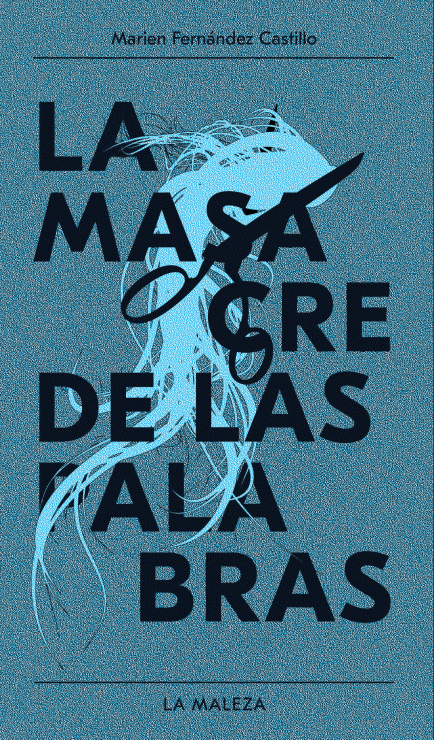
La Masacre de las palabras, a collection of poems by Marien Fernández Castillo, with illustrations by Julio Llópiz-Casal, with a prologue and edited by Martha Luisa Hernández Cadenas and designed by Julian Goll, was printed in Bogotá, Colombia. In the words of its author:
“What this book talks about is rather a symbolic death, a day-to-day death due to longing for a future. And I don't want it to be understood as a complicated play on words: it is a death in life, it is a death of utopias and of the innocence of the child in me, a child who tries to survive in that poetry, but becoming annihilates his innocence and that is his death: a living death of utopia. And even of poetry as utopia."
Author biography:
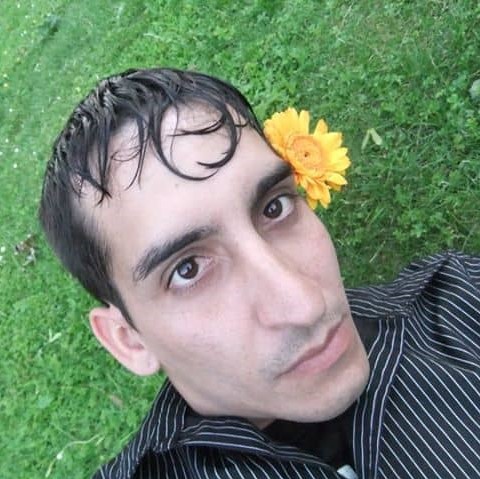
Marien Fernández Castillo
Yaguajay, Cuba, 1982
Playwright, poet and musician. His work is situated between the word and the body. His theatrical text La Furrumalla is part of the anthology Novísimos dramaturgos en Cuba, Ediciones Alarcos, 2008. With his Dramaturgy thesis from the Higher Institute of Art of Havana, in 2010 (Textral of ephemeral art), he created the “textral” concept, as a space of friction between the word and the experience. Since then he explores the politics of friendship and love as a field of creative obsession. Among her recent publications are Penélope sawing televiché, Ediciones sinsentido, Havana, 2017; Le chemin du poéme / The path of the poem, Travesías, France, 2018 and The massacre of words, La Maleza, 2020. She is a member of the Scenic Laboratory for Social Experimentation (LEES). Among his theatrical works stand out: The lucky fish, 2018; Biodrama Experience, 2017; That's how I want. The family as theater, 2016; La Chopitrapo, 2008, among others. He has integrated various emerging theater platforms such as Teatro Mediocre del Caribe, Tubo de Essay, Proyecto Klara and Los alacranes chillan (hip hop group). He is currently part of the collective writing of the theater version of the novel Orlando by Virginia Woolf that Carlos Días will stage with Teatro El Público.
DESCARGAR
Los embajadores psíquicos
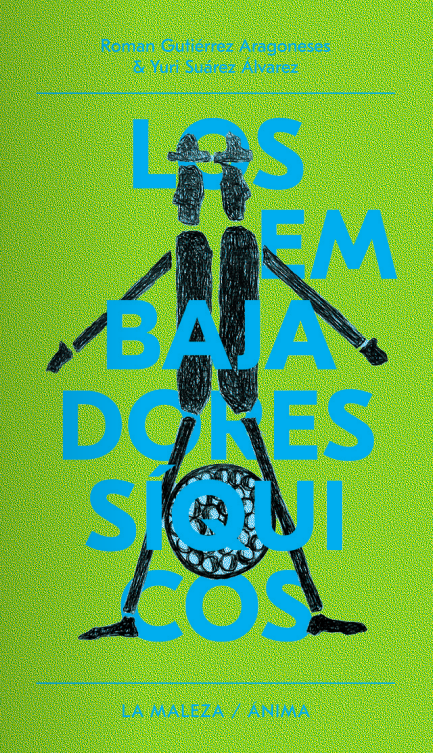
Invisible beings that suggest and magnetize humans with ideas. They are the so-called muses, inspirations or dead of light. They are aware of the creative potential of humans and are in charge of sponsoring those who venture into creation in any branch (poets, painters, musicians, inventors, innovators or leisure immortals). Within the titanic memory of a psychic ambassador is collected the endless list of creators to supervise. They live in eternity, so they can travel through time. They eventually incarnate and live as humans on Earth. Its mission is to prevent the universal balance of ideas from collapsing.
Author biography:
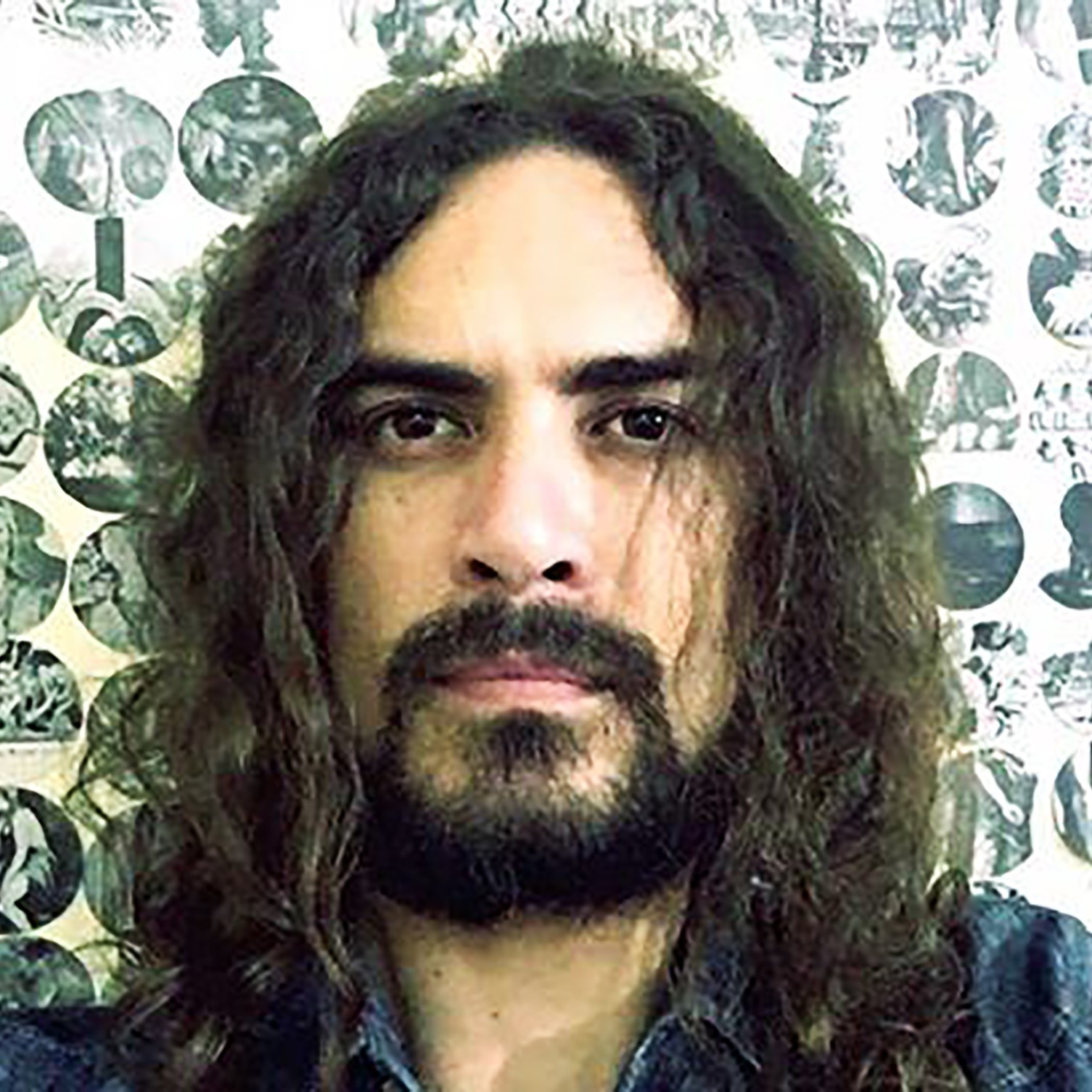
Roman Gutiérrez aragoneses
La Havana, Cuba, 1981
Writer and important figure in the alternative urban environment of Havana. He graduated from the School of Narrative Techniques at the Onelio Jorge Cardoso Center. In 2003 he won the "Dador" Literature Prize, awarded by the Cuban Book Institute, for the novel Aventuras de Palo y Malo en la Vía Láctea, written in collaboration with Michael Lavoy. Five years later, in 2008, the novel was published by Editorial Letras Cubanas, La Novela Collection, and launched at the XVIII Havana International Book Fair. He was then caught up in the strong wave of the Cuban rap music movement and its “Puños Arriba” festival in 2011. He was the founder of the festival's catalog, called Flowmagazine, editing its first volume. His novel Trains go and trains come was included in the list of the publishing house La Maleza, a project by the Cuban artist Lester Alvarez Meno. In March 2018 the novel was printed, becoming the first book published by La Maleza. Gutiérrez has been writing, through the years, a thick collection of poems under the title The Empires of a Vague, which is almost unpublished. In 2017 a brief selection of the poems was published in Revista de la vagancia en Cuba (Number 6, June 2017). In 2020 La Maleza publishes Los Embajadores Síquicos, a book written by Gutiérrez together with the visual artist Yuri Suárez Álvarez. He is currently a member of the Mujercitos Magazine project, on whose platforms he has a section entitled "Psychic Detective", where he regularly publishes his texts on culture and astrology.
DESCARGAR
-
PEDAGOGICAL INITIATIVE–2019
Creative pedagogical permacultural intervention initiative in the Havana neighborhood Reparto Eléctrico
Coordinators:
Arliz Plasencia Fernández
Mario Gonzalo Castillo Santana.
From the social standpoint, the project proposes the creation of a space for the management and sociability of permacultural practices in Reparto Eléctrico. This community lacks experiences that generate support, collaboration, and environmentally-friendly individual and collective development. It is a collective space that encourages creativity through paper and plastic reuse and permaculture through healthy eating with food grown in orchards, yards, and gardens.
Creative experiences pay tribute to both the aesthetic and the utilitarian. The practical results are specified in the rehabilitation and start-up of a physical space where meetings, workshops, training, and practical activities can be organized, with a permaculture garden, qualified staff, and an interactive space for children, raising awareness of environmental and recycling issues as well as cooperation, mutual support, and respect for the environment.
They are in the process of creating the workshop classroom. The construction process has focused on the processing machines with the engineers:
Crusher:
Cuts plastic items into small parts to be turned into new things by other machines. Shredded plastic can be of multiple sizes and colors to increase their value.
Extruder:
Extrusion is a continuous process where plastic particles are inserted into a hopper and extruded into plastic string. These threads can be used to make new raw material, granulated plastic, spun around a mold, or used creatively.
Manual injection machine:
In injection, plastic particles are heated and injected into a mold. It is a relatively fast process and suitable for creating small objects. Molds can be made using CNC milling machines and lathes, or simply by welding.
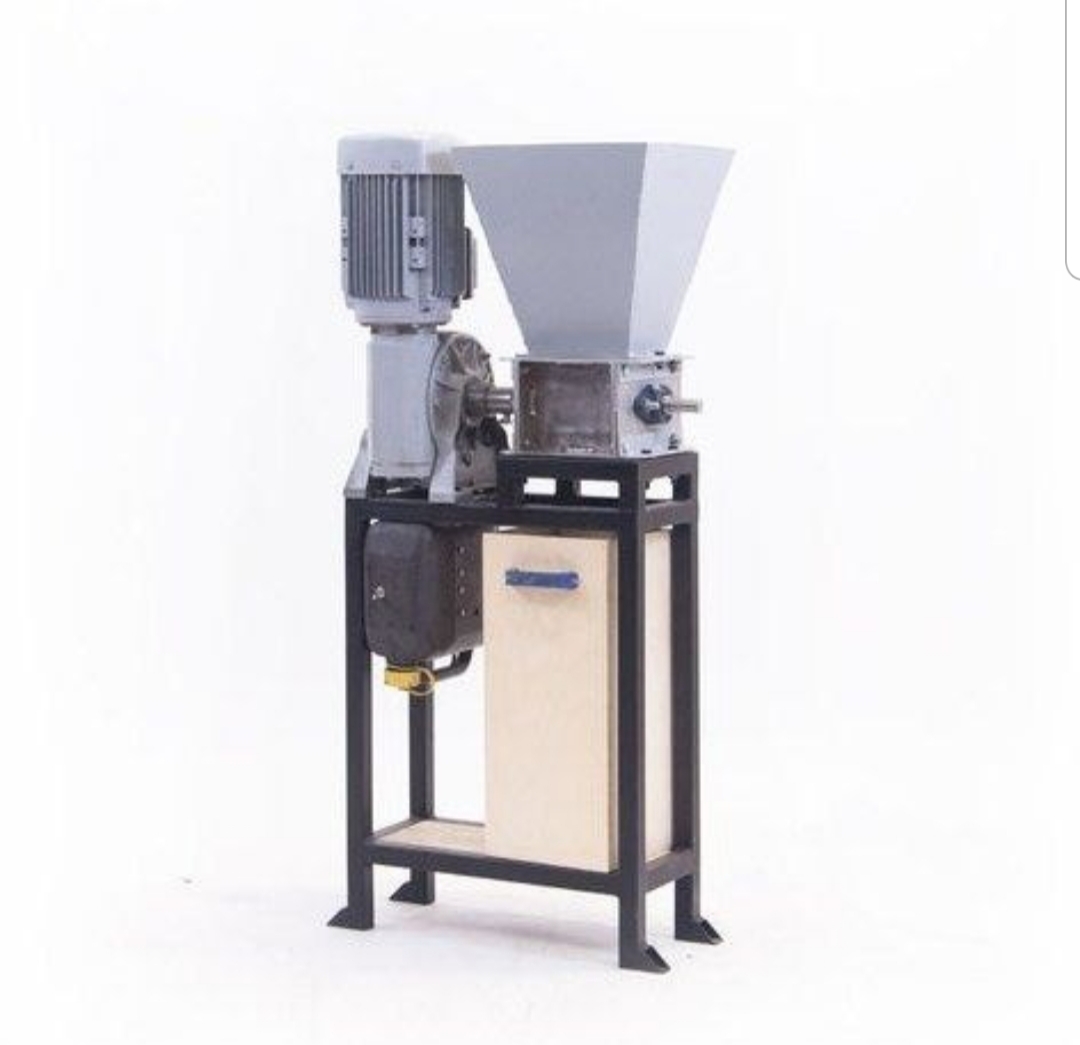
-
JURY
Henry Eric Hernández
(Camagüey, 1971)
Hernández is a social researcher and visual artist. He graduated from the Higher Institute of Art of Havana (ISA) and earned a doctorate from the Complutense University of Madrid. He has been a fellow of The John Simon Guggenheim Memorial Foundation, the PollockKrasner Foundation, The Christoph Merian Foundation International Exchange Studio Program, The Shigaraki Ceramic Cultural Park, and the Botín Foundation. His publications include La revancha (2006) and Otra Isla para Miguel (2008). Almenara PressLeiden has also published his book Mártir, Líder y Pachanga (2017). Recently, CdeCuba Art Books has published his first work as editor, El fin del gran relato (2019), and Almenara Press, in collaboration with the Reinbeckhallen Foundation, has just published his second collective compilation, Pan Fresco. Textos críticos sobre arte cubano. He currently is working on a transdisciplinarity pedagogical project in Chiapas, Mexico.
Pablo Helguera
(Mexico City, 1971)
Helguera is an artist, cultural educator, and writer based in New York. His work focuses on themes that oscillate between history, pedagogy, sociolinguistics, ethnography, memory and the absurd, which he deals with through varied formats such as reading, exhibitions in museums, musical performances, and fiction writing. Helguera has exhibited in institutions such as the Museo de Arte Reina Sofía Art (Madrid), the Royal College of Art (London), in the 8th Havana Biennial, at Shedhalle (Zurich), at MoMA PS1 and the Brooklyn Museum (New York), and at the Tokyo Metropolitan Art Museum.
He has won several awards, including the John Simon Guggenheim Fellowship and the Creative Capital Grant, as well as the Location One Principal Residency in New York (2011–2012). Since 1991 he has been working at several contemporary art museums, such as the Guggenheim Museum in New York, where he was head of Public Programs in the Department of Education, and since 2007 he has directed academic and adult programs at the MoMA. He was the pedagogical commissioner of the 8th Mercosur Biennial, held in 2011 in Porto Alegre, Brazil.
He is the author of the following books: Endingness (2005), The Pablo Helguera Manual of Contemporary Art Style (2005), The Witches of Tepoztlán (and other Unpublished Operas) (2007), The Boy Inside the Letter (2008), Theatrum Anatomicum (and other performance lectures) (2008), The Juvenal Players (2009), Artoons 1, 2, and 3 (200910), What in the World (2010), Urÿonstelaii (2010), Estela y las Hojas (2010), The School of Panamerican Unrest (an Anthology of Documents) [with Sarah DeMeuse] (2011), Education for Socially Engaged Art (2011), Art Scenes: The Social Scripts of the Art World (2012), Onda Corta (2012), and Artunes (2012 ).
Nuria Güell
(Girona, 1981)
Güell is a Spanish visual artist recognized for her artistic projects of a political and social nature. She graduated in Fine Arts in 2003 from the University of Barcelona, and studies for a year at the Higher Institute of Art (ISA) in Havana, joining the Cátedra Arte de Conducta, directed by Tania Bruguera. In 2012 she participated in the independent study program at SOMA in Mexico City. Her work has been widely exhibited in museums and galleries around the world, and in biennials such as Gothenburg, Athens, and Beirut.
She has won many awards, including: Second Prize for Artistic Creation at the Universidad de Zaragoza and First Prize at the V Bienal d'Art Contemporani de Vic. HAssociació per les Arts Contemporànies, in 2006; in 2008 she won First Prize at the V Biennal d'Art de Girona; in 2009 the Batiscafo Residency, Triangle Arts Trust, Havana, Cuba, and the V Biennal de Valls prize; in 2010, the residency at Off Limits, Madrid, the Injuve Creation Prize, Madrid, and the Miquel Casablanques Project Prize, Sant Andreu Contemporani, Barcelona; in 2011, Premi Ciutat de Palma "Antoni Gelabert" d’Arts Visuals, Mallorca, Spain Curators’ Network; in 2012 the Mention of Honor of the Ciutat de Palma Prize “Antoni Gelabert” d’Arts Visuals, Mallorca; in 2013 the Premi Ciutat de Palma "Antoni Gelabert" d’Arts Visuals. Mallorca, the T.R.I.B.E. MoTA – Museum of Transitory Art, Ljubljana, Slovenia; and in 2013 the Laspis Residence, Gothenburg, and the Artists Residency Programme at IMMA, Dublin; in addition to the International Prize for Contemporary Art Diputación de Castellón, Espai d'Art Contemporani de Castelló (EACC).
In 2014 she won two important awards for her exhibition Alegaciones desplazadas, the Recognition Award for Contemporary Art (RAC), best private exhibition of a Spanish artist in a Spanish gallery, as well as the GACDKV Award, at adn gallery. The 14th contemporary art biennial Mostra de Arte Gas Natural Fenosa awarded her First Prize in 2016; in 2018, she was awarded the Premi Ciutat de Palma Antoni Gelabert d'Arts Visuals.